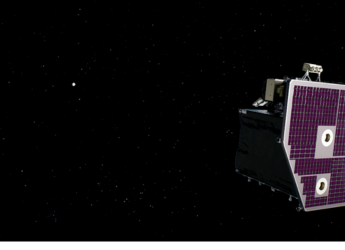- Home
- Science
- Science News
- Is This Plastic Eating Enzyme the Pollution Cure We've All Been Waiting For?
Is This Plastic-Eating Enzyme the Pollution Cure We've All Been Waiting For?

Image of the plastic eating enzyme
Scientists have accidentally developed a plastic-eating enzyme that may be used to combat one of the world's worst pollution problems, a media report said.
Researchers from Britain's University of Portsmouth and the US Department of Energy's National Renewable Energy Laboratory (NREL) made the discovery while examining the structure of a natural enzyme found in a waste recycling centre a few years ago in Japan, CNN reported on Tuesday.
The finding was published on Monday in the Proceedings of the National Academy of Sciences.
They said the enzyme, Ideonella sakaiensis 201-F6, is able to "eat" polyethylene terephthalate, PET, which was patented as a plastic in the 1940s and is used in millions of tonnes of plastic bottles.
Their aim was to study its structure, but they accidentally engineered an enzyme which was even better at breaking down PET plastics.
"We hoped to determine its structure to aid in protein engineering, but we ended up going a step further and accidentally engineered an enzyme with improved performance at breaking down these plastics," said NREL's lead researcher Gregg Beckham.
The discovery could result in a recycling solution for millions of tonnes of plastic bottles made of PET, which currently persists for hundreds of years in the environment, the University of Portsmouth said on its website.
"Serendipity often plays a significant role in fundamental scientific research and our discovery here is no exception," said Professor McGeehan, director of the Institute of Biological and Biomedical Sciences in the School of Biological Sciences at Portsmouth.
The enzyme can also degrade polyethylene furandicarboxylate, or PEF, a bio-based substitute for PET plastics that is being hailed as a replacement for glass beer bottles, CNN reported.
PEF plastics, although bio-based, are not biodegradable, and would still end up as waste in landfills and in the seas, the NREL said.
According to a three-year study published in Scientific Reports last month, a huge, swirling pile of trash in the Pacific Ocean, known as the Great Pacific Garbage Patch, is growing faster than expected and is now three times the size of France, more than double the size of Texas.
For details of the latest launches and news from Samsung, Xiaomi, Realme, OnePlus, Oppo and other companies at the Mobile World Congress in Barcelona, visit our MWC 2026 hub.
Related Stories
- Samsung Galaxy Unpacked 2026
- iPhone 17 Pro Max
- ChatGPT
- iOS 26
- Laptop Under 50000
- Smartwatch Under 10000
- Apple Vision Pro
- Oneplus 12
- OnePlus Nord CE 3 Lite 5G
- iPhone 13
- Xiaomi 14 Pro
- Oppo Find N3
- Tecno Spark Go (2023)
- Realme V30
- Best Phones Under 25000
- Samsung Galaxy S24 Series
- Cryptocurrency
- iQoo 12
- Samsung Galaxy S24 Ultra
- Giottus
- Samsung Galaxy Z Flip 5
- Apple 'Scary Fast'
- Housefull 5
- GoPro Hero 12 Black Review
- Invincible Season 2
- JioGlass
- HD Ready TV
- Latest Mobile Phones
- Compare Phones
- Vivo X300 FE
- Tecno Pop X
- Apple iPhone 17e
- AI+ Pulse 2
- Motorola Razr Fold
- Honor Magic V6
- Leica Leitzphone
- Samsung Galaxy S26+
- MacBook Neo
- MacBook Pro 16-Inch (M5 Max, 2026)
- Tecno Megapad 2
- Apple iPad Air 13-Inch (2026) Wi-Fi + Cellular
- Tecno Watch GT 1S
- Huawei Watch GT Runner 2
- Xiaomi QLED TV X Pro 75
- Haier H5E Series
- Asus ROG Ally
- Nintendo Switch Lite
- Haier 1.6 Ton 5 Star Inverter Split AC (HSU19G-MZAID5BN-INV)
- Haier 1.6 Ton 5 Star Inverter Split AC (HSU19G-MZAIM5BN-INV)

















